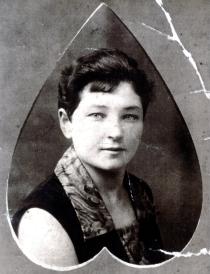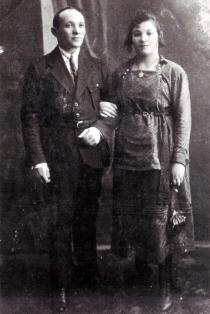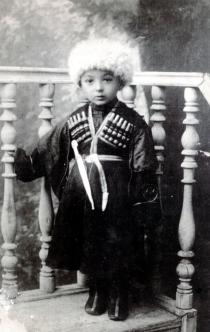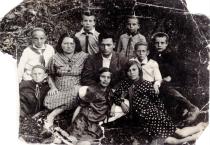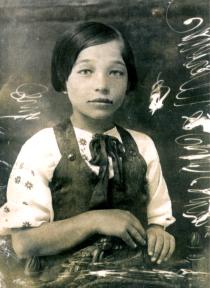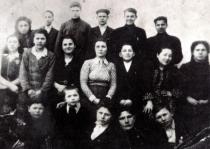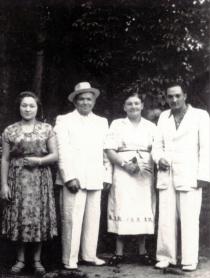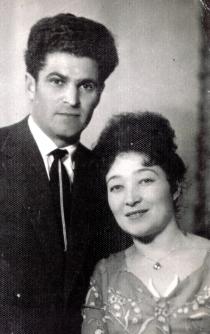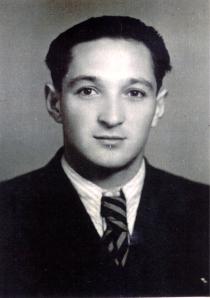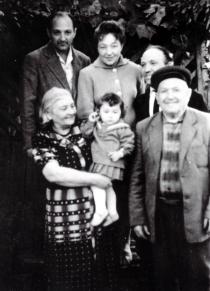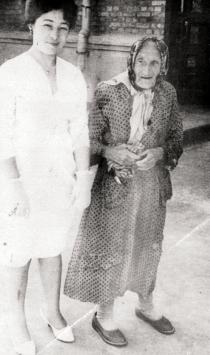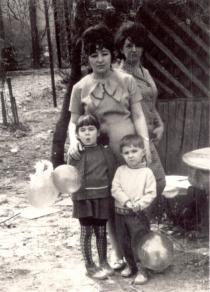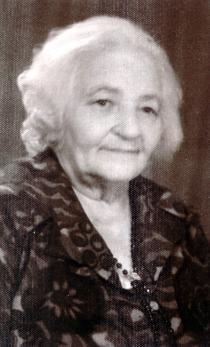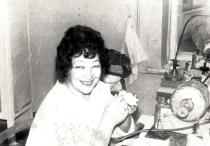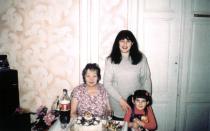This is me and my husband Efim Orlov. The photo was taken in Chernovtsy in 1962 after Efim visited me and received my consent to our marriage.
I met Efim in Chernovtsy. He visited our distant relative from Murafa. They both came to our house. We met when I returned from work. He was a student at the Medical School in Vinnitsa. He came to Chernovtsy on vacation. After he went back to Vinnitsa we started to correspond with each other. A year later he came to Chernovtsy and proposed to me. My husband's real name was Efim Srulevich. Before our wedding he changed his Jewish surname to Orlov, a typical Russian surname. He probably thought this would make our life easier and our children would have fewer problems. We got married in 1962 and had a civil ceremony. Then he returned to Vinnitsa to finish his studies. When my husband returned we had a traditional Jewish wedding. We had a chuppah at home, and a rabbi from the synagogue conducted the wedding ceremony. The rabbi said what's traditionally said at weddings. My husband and I exchanged rings and then had a glass of wine given to us. We sipped wine from the glass and the rabbi told me to throw the glass to the ground and break it. We only invited our closest family and friends to our Jewish wedding party.
Efim was born in Dzhurin village, Vinnitsa region in 1931. His father, Shmil Srulevich, was the director of a storehouse before the war, and his mother, Etia Srulevich, was a housewife. Efim had a younger sister called Anna. During World War II their family was in the ghetto in Dzhurin. After the liberation Efim's father was very ill and couldn't work any more. Efim's sister got married and lived in Odessa. She was an accountant at the sugar factory, and her husband was a turner. They had two children. Now my husband's sister and her family live in Israel.
Efim finished school after the war and served in the Soviet army in Germany [East Germany] for two years. After demobilization he worked as a bus driver, and later he entered the Stomatological Faculty of the Medical School in Vinnitsa. After he finished Medical School he got an assignment in a village in Chernovtsy region. He worked there for two years before he got a job in Chernovtsy. He was a dentist in a military hospital.
My parents gave me and my husband one room and moved into another room in the same flat with my brother. My husband and I observed Jewish traditions. Of course, it was difficult to follow the kashrut because there was no place to buy kosher products. On Friday evenings the family got together for prayers and the ceremony of lighting candles. We couldn't observe Sabbath because it was a working day, but we got together on all other Jewish holidays.

